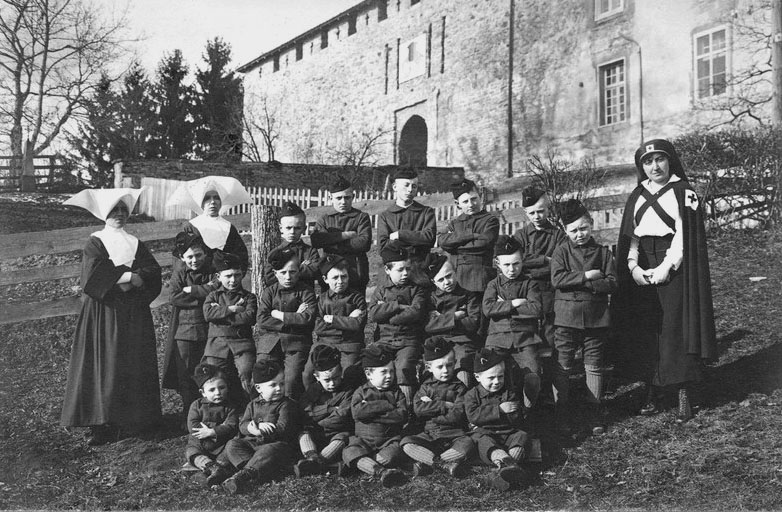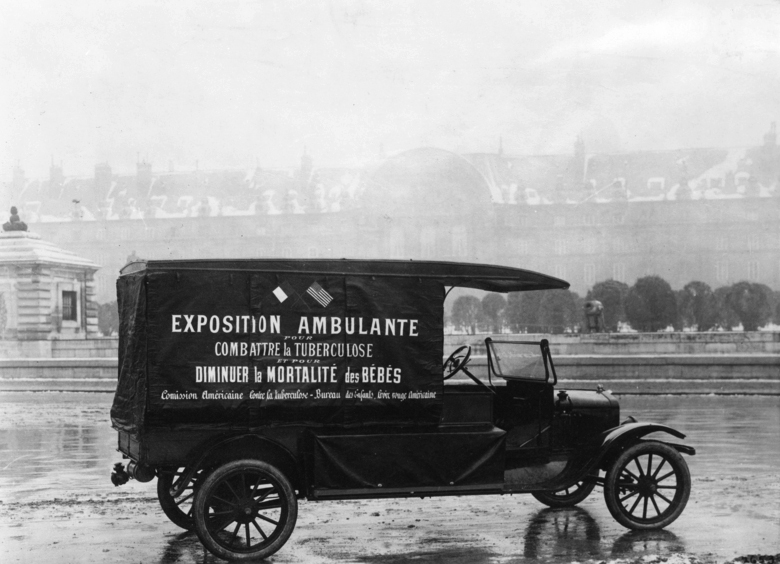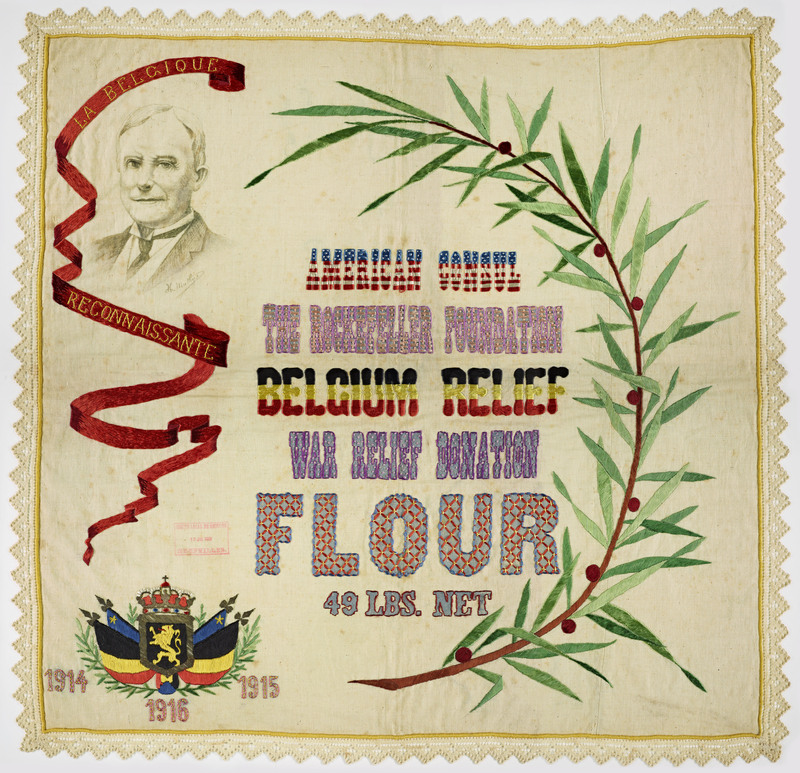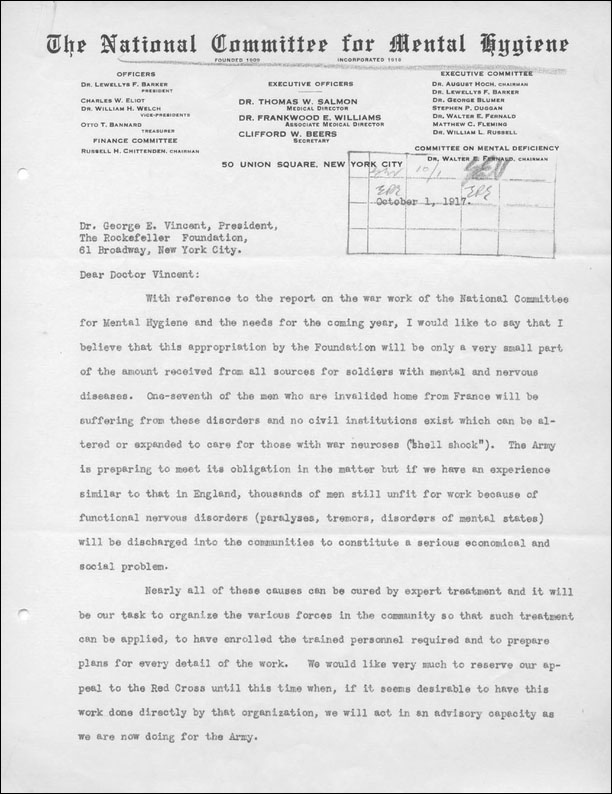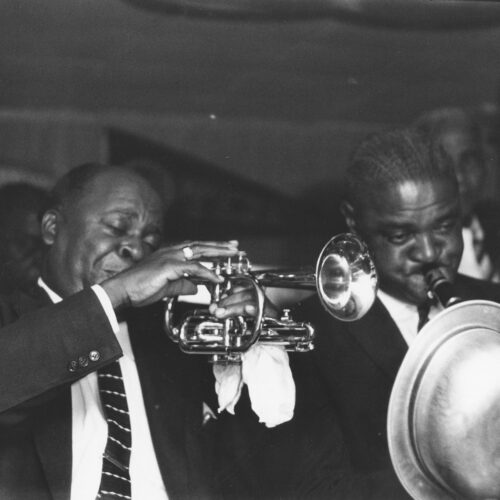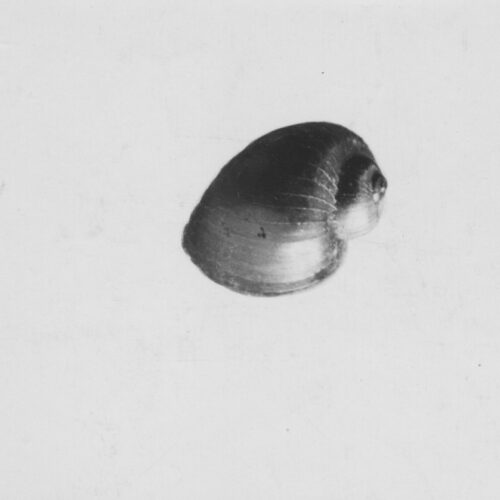Soon after the Rockefeller Foundation was founded in 1913, with a mandate to “promote the well being of mankind throughout the world,” a cataclysmic war erupted in Europe. World War I prompted the Foundation to respond by providing humanitarian aid to the people affected.
When Europe descended into war in 1914, the RF was a new foundation, entrusted with a large amount of money but still exploring the best ways to make use of its wealth. As the scope of the humanitarian crisis associated with the war became clear, the RF took swift action to provide relief. The RF quickly acted to transport shiploads of food, clothing and medical aid to Belgian refugees displaced by the war.
During World War I the Rockefeller Foundation (RF) tried to find its footing as a charitable foundation while simultaneously responding to a humanitarian crisis. Beginning in 1914 the newly established RF opened its coffers to a variety of war-related causes that required immediate attention. The Foundation appropriated $22 million toward humanitarian aid, medical research and relief and camp and community welfare.
Humanitarian Aid
Early in the war the RF organized and funded the provision of food, clothing and medical aid to Belgian refugees. Cooperating with established organizations like the Commission for Relief in Belgium (CRB), headed by Herbert Hoover, and making use of the Foundation’s relationship with the Rockefeller-owned Standard Oil, the RF arranged shipping, paid freight charges and loaded several ships with RF-purchased cargo for affected civilians. Citing a report of the arrival of the relief ship Massapequa, RF Trustee Starr J. Murphy reported back to John D. Rockefeller, Jr. (JDR Jr.):
Five hundred stevedores jumped aboard and flung themselves at the cargo while the steamer was being made fast. The men actually fought for the right to participate in unloading …They worked like heroes Saturday night, Sunday, and Sunday night, and by 10 p.m [sic]. Monday morning had practically the entire cargo cleared and all previous records of the port easily broken. Great crowds assembled and cheered the unloaders.Letter from Starr J. Murphy to John D. Rockefeller, December 14, 1914, Rockefeller Archive Center (RAC), RG 1.1, Series 100N, Box 67, Folder 658.
Spurred on by obvious need, and its mandate to “promote the well-being of mankind throughout the world,” the RF dispatched a commission to Europe to study the situation and provide further recommendations. Chaired by Wickliffe Rose, the War Relief Commission sent its first report on Belgium in January 1915 reassuring RF trustees that relief efforts were reaching the needy but acknowledging that more resources were needed. The WRC eventually established a European headquarters in Bern, Switzerland, under the direction of Warwick Greene. Between 1914 and 1917 WRC members traversed war-ravaged Europe reporting on the work of the commission, as well as on the general political, economic and social conditions they encountered.
The WRC recognized early the need for relief efforts beyond Belgium. As JDR Jr. recounted:
The purpose which the Rockefeller Foundation had in mind in sending the war relief commission to Europe was primarily that of suggesting methods of assisting in efforts to rehabilitate one or more of the war-swept countries. It soon became obvious, as the war progressed, that rehabilitation could not be contemplated this early, and that the great problem of the moment was the providing of relief for the starving nations.”RF Resolution of April 8, 1915, RAC, RG 1.1, Series 100N, Box 56, Folder 553.
Relief was extended as far as eastern Europe in 1915, including aid to Poland and Serbia, as well as assistance to Armenians affected by the massacres and deportations of 1915.
In 1917, when the U.S. entered the war, the WRC’s neutrality could no longer be preserved, and its members were recalled to the United States. The RF continued to coordinate its work through organizations such as the American Red Cross and the Young Men’s Christian Association (YMCA).
Medical Research and Relief
The two largest appropriations in wartime-related medical research and relief were given to the Rockefeller Institute and the National Committee for Mental Hygiene. The Rockefeller Institute supplied anti-meningitis and anti-dysentery serums and kept a wartime hospital accommodating 363 patients. Funds for the continued research of Alexis Carrel were also directed through the Rockefeller Institute. Carrel, a member of the institute, was accepted into the Medical Corps of the French army.While he served on the front lines, the RF provided him with continued support to pursue his research on the sterilization and treatment of wounds.
The funds provided to the National Committee for Mental Hygiene assisted the army in recruiting psychiatrists to help diagnose nervous disorders, including shell shock, among servicemen. This interest in shell shock also led to the support of the research of Thomas W. Salmon, who was sent abroad to study the prevalence of nervous disorders and their possible treatment both at the front and following demobilization.
A Concern for Mental Health
The Rockefeller Foundation’s Camp and Community Welfare initiatives focused on providing relief to prisoners of war. The Rockefeller Foundation supported the work of organizations like the YMCA that cared for prisoners from both sides of the conflict.
Appealing directly to John D. Rockefeller, Jr. for a contribution towards its work, YMCA leader John R. Mott wrote,
There are now in the military prison camps of the countries on both sides of the struggle a little over 2,000,000 men. There they are, shut up until the end of the war. A careful study of the conditions has shown that they are in grave danger of physical, mental and moral deterioration unless something is done to occupy their minds, and so far as possible, their bodies.
John R. Mott, 1915Letter from John R. Mott to John D. Rockefeller Jr., June 16, 1915, RG 1.1, Series 100N, Box 81, Folder 761.
Further Relief Efforts for Prisoners of War and Soldiers
Later relief efforts were orchestrated by the Rockefeller Foundation’s War Relief Commission, which organized operations throughout the continent. In addition to civilian aid, the Foundation contributed significantly to the care of prisoners of war and to medical research in the armed services.
After the war, the Rockefeller Foundation remained in France to respond to a growing tuberculosis epidemic that had worsened as sick soldiers returned from the trenches. The Commission for the Prevention of Tuberculosis in France remained until 1922, helping to contain the spread of the illness, educate the public about prevention, and broaden the scope of public health activities in France.
New Strategic and Geographical Priorities for the Rockefeller Foundation
At the outbreak of World War I, the Rockefeller Foundation had been a new organization with a broad mandate but no clear path on how to achieve it. Accordingly, the Foundation engaged in wartime activities that were diverse in scope.
Less than twenty years later, as World War II approached, the Rockefeller Foundation would respond much differently. By then, the Foundation resolved to fund programs that would build knowledge and infrastructure, rather than providing relief, causing the Foundation to respond with much less flexibility to World War II. While the Rockefeller Foundation did support a refugee scholar program in Europe from 1933-45, as well as an ACLS program to protect cultural heritage sites in combat areas, for the most part the organization focused its programming on the developing world.
Research This Topic in the Archives
Explore this topic by viewing records, many of which are digitized, through our online archival discovery system.
- “2. Program and Policy,” 1915-1920. Rockefeller Foundation records, Projects (Grants), Record Group 1, Subgroup 1.1, International, Series 100, War Relief, Subseries 100.N, Rockefeller Archive Center.
- “3. Medical Aid,” 1914-1921. Rockefeller Foundation records, Projects (Grants), Record Group 1, Subgroup 1.1, Series 100.N, Rockefeller Archive Center.
- “5. Humanitarian Aid,” 1914-1918. Rockefeller Foundation records, Projects (Grants), Record Group 1, Subgroup 1.1,International, Series 100, War Relief, Subseries 100.N, Rockefeller Archive Center.
- “2. Public Statements – Belgium,” 1914-1915. Rockefeller Foundation records, Projects (Grants), Record Group 1, Subgroup 1.1, International, Series 100, War Relief, Subseries 100.N, Rockefeller Archive Center.
- “11. Letters of Appreciation – Belgium,” 1914-1934. Rockefeller Foundation records, Projects (Grants), Record Group 1, Subgroup 1.1, International, Series 100, War Relief, Subseries 100.N, Rockefeller Archive Center.
- “1. Dr. Carrel’s Work in France-Report,”1914-1918. Rockefeller Foundation records, Projects (Grants), Record Group 1, Subgroup 1.1, International, Series 100, War Relief, Subseries 100.N, Rockefeller Archive Center.
- “2. Correspondence – National Committee for Mental Hygiene,” 1917-1918. Rockefeller Foundation records, Projects (Grants), Record Group 1, Subgroup 1.1, International, Series 100, War Relief, Subseries 100.N, Rockefeller Archive Center.
- “3. Negotiations,” 1914-1916. Rockefeller Foundation records, Projects (Grants), Record Group 1, Subgroup 1.1, International, Series 100, War Relief, Subseries 100.N, Rockefeller Archive Center.
- “4. General Correspondence,” 1914-1917. Rockefeller Foundation records, Projects (Grants), Record Group 1, Subgroup 1.1, International, Series 100, War Relief, Subseries 100.N, Rockefeller Archive Center.
- “1. General Correspondence,” 1914-1915. Rockefeller Foundation records, Projects (Grants), Record Group 1, Subgroup 1.1, International, Series 100, War Relief, Subseries 100.N, Rockefeller Archive Center.
- “4. Appeals,” 1915-1917. Rockefeller Foundation records, Projects (Grants), Record Group 1, Subgroup 1.1, International, Series 100, War Relief, Subseries 100.N, Rockefeller Archive Center.
- “6. Photographs” Undated. Rockefeller Foundation records, Projects (Grants), Record Group 1, Subgroup 1.1, International, Series 100, War Relief, Subseries 100.N, Rockefeller Archive Center.
- “1. Reports and Memoranda,” 1915-1916. Rockefeller Foundation records, Projects (Grants), Record Group 1, Subgroup 1.1, International, Series 100, War Relief, Subseries 100.N, Rockefeller Archive Center.
- “1. Turkish Relief – General Correspondence,” January-June 1916. Rockefeller Foundation records, Projects (Grants), Record Group 1, Subgroup 1.1, International, Series 100, War Relief, Subseries 100.N, Rockefeller Archive Center.
- “8. YMCA International Committee – Foreign War Prisoners” 1915-1919. Rockefeller Foundation records, Projects (Grants), Record Group 1, Subgroup 1.1, International, Series 100, War Relief, Subseries 100.N, Rockefeller Archive Center.
- “War Relief Work” circa 1905-1980. Rockefeller Foundation records, Photographs, International, Series 100, War Relief, Subseries 100.N, Rockefeller Archive Center.
The Rockefeller Archive Center originally published this content in 2013 as part of an online exhibit called 100 Years: The Rockefeller Foundation (later retitled The Rockefeller Foundation. A Digital History). It was migrated to its current home on RE:source in 2022.
